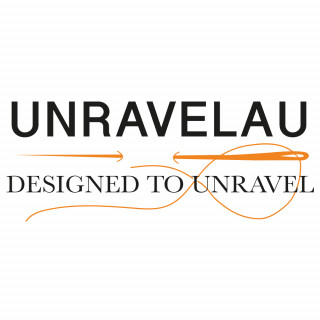Unravelau is a high-end fashion brand established in 2017 by the designer Laura Meijering who believes that you don’t have to sacrifice style in order to make conscious choices. While each collection is unique, they are all designed with care for the planet. Our garments are handcrafted in The Netherlands and made of natural and upcycled materials only. At Unravelau, we believe that every little step counts - together with you, we unravel the fashion industry. One garment at a time.
Unravelau

What is the goal of the project?
Unravelau wants to offer an alternative to fast fashion by designing elegant and long-lasting garments that leave a minimal ecological footprint while raising awareness and incentivizing citizens to buy less and more consciously.
What is the result of the project?
Currently, we are achieving our goal by integrating zero-waste practices into each step of the production. Unravelau works with zero-waste patterns and upcycles second-hand garments and fabrics that are collected at the Upcycle Center in Almere, thereby saving resources and reducing the city’s textile waste at the same time. All garments are manufactured on a made-to-order basis to avoid overproduction.
Who initiated the project and which organizations are involved?
The Founder and Creative Director of Unravelau is Laura Meijering. She works together with the Upcycle Center Almere where the Unravelau atelier is located, sourcing second-hand materials from their textile collection point. Since Unravelau’s core values include raising awareness, Laura Meijering regularly collaborates with schools and other educational entities giving presentations and workshops for stakeholders.
What is the next step?
Grow our customer base and expand the business. At the moment, we produce all our garments in our atelier but with the demand increasing, we are looking for ways to outsource the manufacturing to other ateliers in The Netherlands. This gives us the freedom to focus on the creative process and come up with innovative designs and solutions to tackle textile waste. We don’t want to follow the book as the whole fashion industry is slowly realizing that the old ways simply don’t work anymore. It is time to work with demand chains rather than supply chains, which is why we won’t produce an entire collection at once but will have ‘outfit drops’. The outfits can be preordered and the customers can give feedback to the designs. This way we can produce on demand and create the garments that our customers want instead of what we think they need.
What can other cities learn from your project?
Designers should have more easy access to textile collection points. With the second-hand market being saturated most garments are destined for landfill. More collaborations between cities and designers or design students would be beneficial for both sides, turning waste into valuable material.


